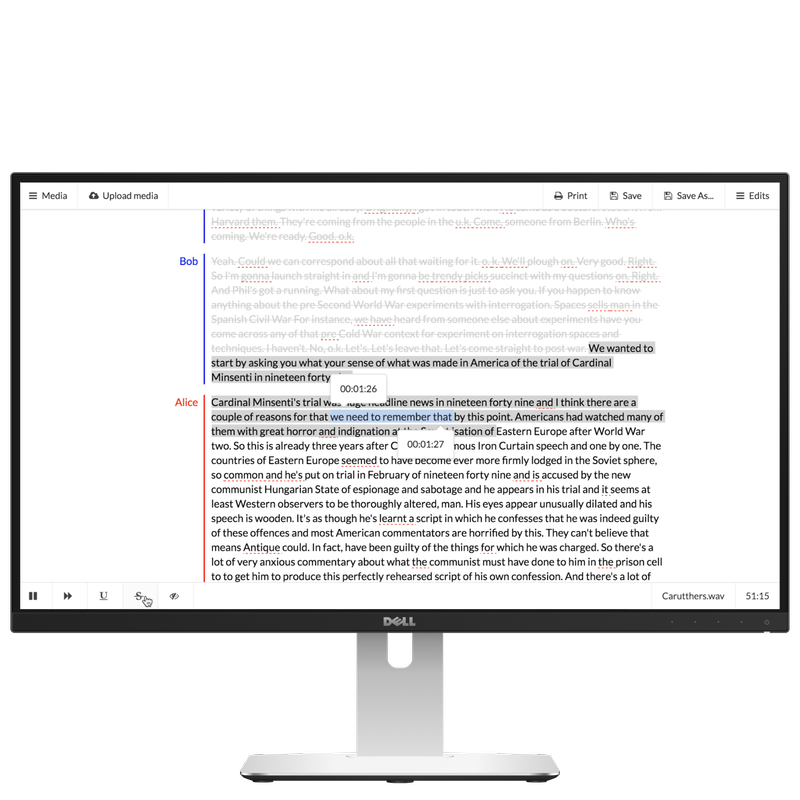Dialogger
Transcript-based media editor
Back in 2015, we developed one of the world’s first text-based media editors. Since then, text-based editing has become a popular feature and is present in many mainstream video editors. The idea originated from an ethnographic study we conducted in which we observed radio production at the BBC. We saw that producers would have all of their recordings transcribed and then edit the programme using the transcript in what they call a “paper edit”. We created Dialogger to evaluate whether this process could be achieved on-screen, and what impact that would have on the production workflow.
Credit: BBC
Our prototype used speech-to-text to automatically transcribe recordings that were uploaded to the system. Through a word-processor-style interface, producers could then navigate the recording using the transcript. Producers could edit the audio by underlining text of interest, and striking unwanted text. The audio playback would skip over any unwanted parts so that the edit could be previewed. The transcript was segmented by speakers, which could be edited to aid navigation. When finished, the edit could be exported as an audio file, or project file for further editing in a digital audio workstation.
We evaluated the system by using it as part of the production of five BBC radio programmes. We found that it improved the process in many ways and identified opportunities to improve the system by adding support for annotation, collaboration, and offline working. We made the code of the original prototype available as open-source software. The success of the prototype later inspired the development of the Digital Paper Edit tool that made text-based editing available to BBC producers.
